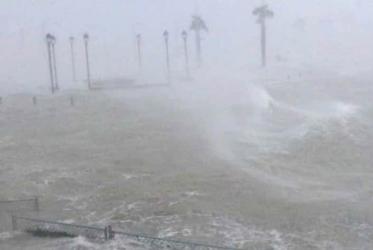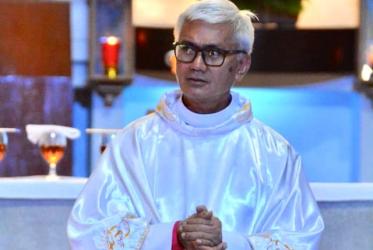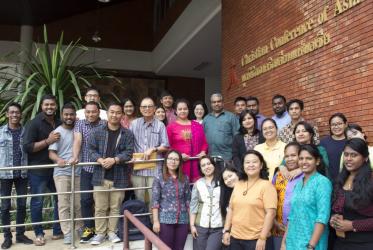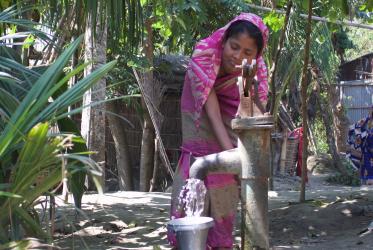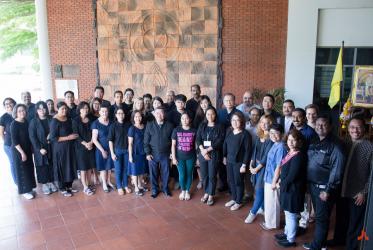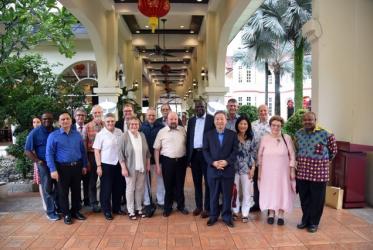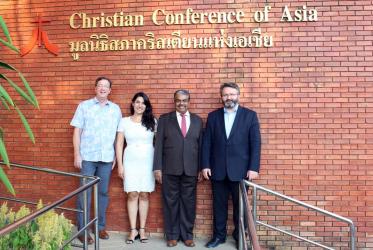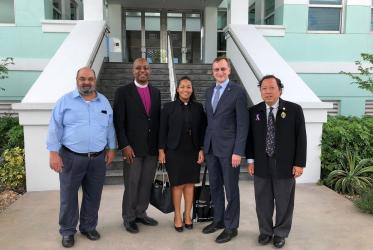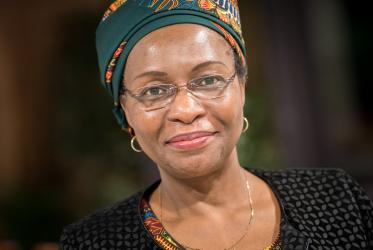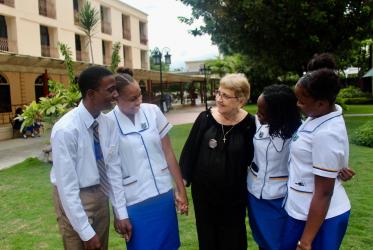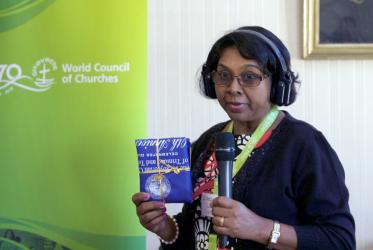Displaying 81 - 100 of 206
Workshop in Jamaica focuses on human rights
16 May 2019
WCC condemns massacre of farmers in Philippines
12 April 2019
Peace is common denominator of all major religions
05 March 2019
WCC pilgrimage turns its eyes to Asia
04 March 2019
Conciliar Unity: Whither Vision and Direction?
14 December 2018
All pilgrim routes lead to COP24
11 December 2018
35th General Assembly of Church of Christ in Thailand commences
23 October 2018
Tveit: “Faith is what God has given to us”
11 October 2018
“If this is the ecumenical movement I want to be in!”
11 October 2018
Trinidad and Tobago church challenges plastic pollution
09 October 2018
